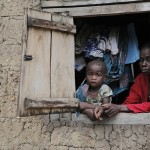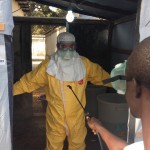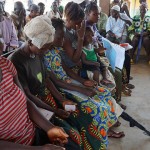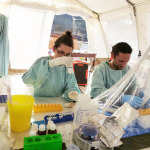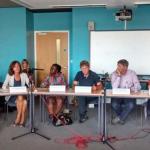‘Stigma’ is an umbrella term for the direct and indirect consequences of a number of processes that brand someone as different in ways that result in discrimination, loss of status and social exclusion. It can be short-term or evolve into a long-term and life-long issue. Who and how people are being socially labelled – plus the material, political, social and moral consequences of this labelling – often change rapidly throughout the course of an epidemic, particularly from the early stages of an emerging outbreak to
Continue reading →
The scale of West Africa’s Ebola epidemic has been attributed to the weak health systems of affected countries, their lack of resources, the mobility of communities and their inexperience in dealing with Ebola. This briefing for African Affairs argues that these explanations lack important context. The briefing examines responses to the outbreak and offers a different set of explanations, rooted in the history of the region and the political economy of global health and development. To move past technical discussions of “weak” health systems, it
Continue reading →
This paper by Anoko J. N., reports on the success of a communication programme among 26 rebellious villages in Forest Guinea during fieldwork in June-July 2014. This was based on listening to complaints and taking into account the customs and culture of those concerned. The main methodologies were socio-anthropological enquiry and action research, based on bibliographic research, observations, formal and informal interviews with resource persons and political leaders from Forest Guinea; women , young and very old people of both sexes, street vendors, restaurateurs, local
Continue reading →
The American Anthropological Association / World Council of Anthropological Associations/ Wenner-Gren Foundation Emergency Initiative on the Ebola Outbreak, is bringing together anthropologists from around the world with expertise in Guinea, Sierra Leone, Liberia, and Nigeria, other Ebola-affected regions, and in infectious disease management for a workshop to address critical issues in the current Ebola outbreak. The workshop will generate a series of short briefing papers that provide actionable guidance to real-time actors in the field for how to proceed with technical, political, social, and economic
Continue reading →
Physicians, scientists, and public health experts shared their experience from the front lines of fighting Ebola virus disease in this symposium session presented at the American Society of Tropical Medicine and Hygiene (ASTMH) 63rd Annual Meeting in New Orleans. Speakers also discussed challenges and advances in methods of control and the promise of possible future solutions. Watch video here.
